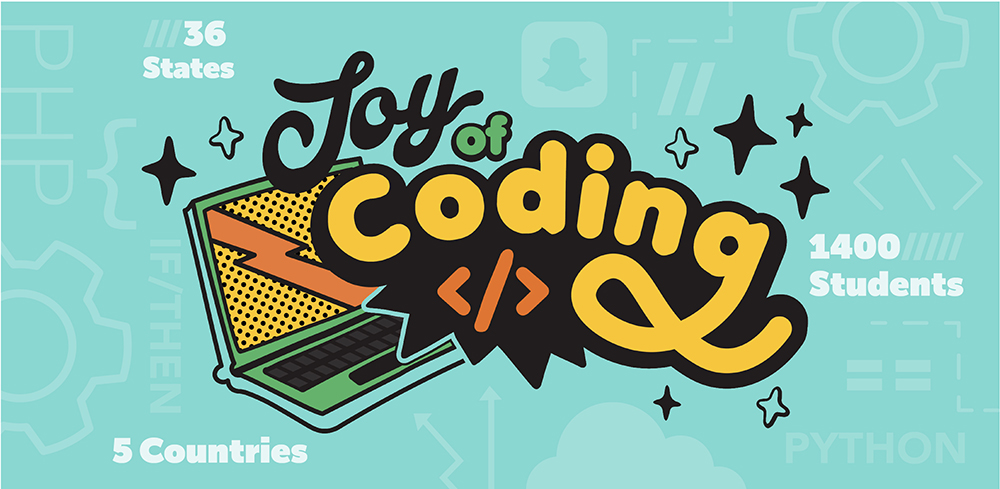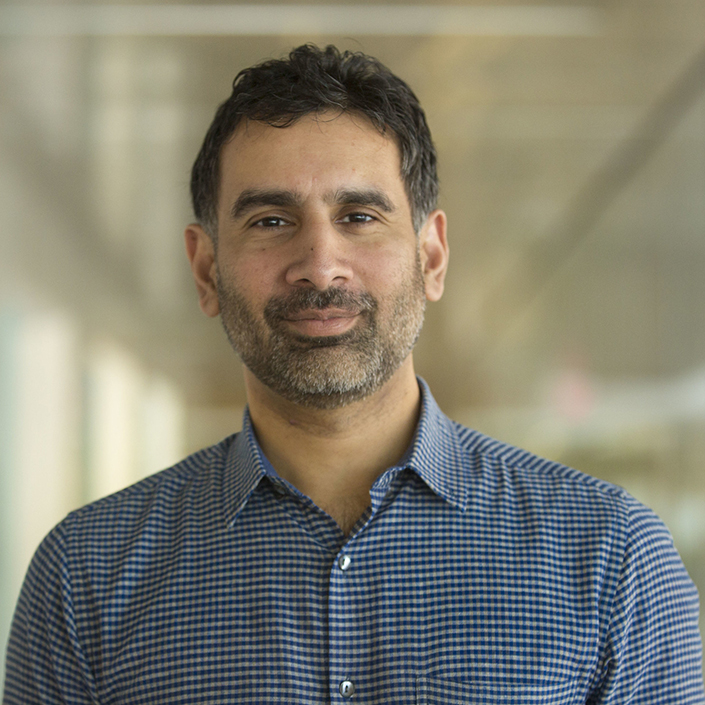High School students discover “The Joy of Coding” in new ECE online course

A new online course offered by Michigan ECE’s Continuum program, “The Joy of Coding,” introduces first-time coders, especially high school students, to the wondrous world of coding. The online format is designed to improve access to engineering education for all students, including those coming from rural and underserved areas, who often have few options for these types of courses.
“This program is about making education more accessible for everyone,” said Mingyan Liu, the Peter and Evelyn Fuss Chair of ECE. “Our goal is to advance inclusive teaching by reaching more students without sacrificing quality.”
This program is about making education more accessible for everyone.
Mingyan Liu, the Peter and Evelyn Fuss Chair of ECE
The first course was offered in the summer of 2021, and the second course will be offered this summer. Over 1,400 students enrolled in the first course, representing five countries and 36 states. In addition, almost 40% of enrollees were women and 20% of enrollees were underrepresented minorities. Over 1,000 students completed the course and obtained an official certificate of accomplishments, which can be included in college applications.
“We created The Joy of Coding because we realized that many high school students wanted to, and were ready to learn to code – but many didn’t know where to start,” said Prof. Raj Nadakuditi, who created and developed the program along with a team of students and ECE staff.
Like the other courses in the online Continuum program, Joy of Coding helps teach computational thinking, which is important preparation for those wanting to go into STEM fields. Specifically, students learn how to use Python and study how coding powers apps such as TikTok, Instagram, Snapchat, and Siri. And they apply their newly-gained coding and computational skills in a variety of exercises, such as designing their own Snapchat filters.
“My favorite part of this course was coding a sunglasses filter on my own selfie, because I was able to use what I was taught throughout the course in my own project,” said Joy of Coding student, Anirudh.

Many students appreciated learning basic logic statements.
“The most fun thing to learn were the ‘if – else’ statements, as that opened up a lot for me,” said a 9th grade Joy of Coding student. “Those statements could be used for countless things that I want to create.”
The course is self-driven and asynchronous and does not require any previous coding experience. Students are expected to finish one integrated lecture, one reading, and one coding module each week. On average, it requires four to six hours of work each week. A team of sixteen experienced University of Michigan students serve as teaching assistants and coaches, which makes the experience very different from other online educational course options, such as traditional Massive Open Online Courses (MOOCs).
“[The coaches] are super helpful, and they have a quick response time,” said Joy of Coding student, Lalitha. “If I ever needed help, I’d always reach out to them.”
Each online segment is known as a “codex,” and uses Pathbird, a cloud-based interactive textbook platform developed by Nadakuditi and U-M alumnus Travis DePrato. The codices provide a guided structure to lead students step-by-step from concept to application. The course is designed for experiential learning, so there are no formal lectures. Instead, short videos are interspersed as needed in each codex.
“I really liked that it was asynchronous,” said Joy of Coding student, Emma. “I was able to work at my own pace and thoroughly learn each topic. The emails were always so fun, and the lessons, the videos, they made the program a really interactive and enjoyable experience.”
While the course is designed to be accessible to first time coders, it gives students with some coding experience the opportunity to apply math concepts and advance their understanding of machine learning.
“Overall, this course really inspired me to delve deeper into the computer science world, and it exposed me to new concepts and new ways to use these concepts,” said Joy of Coding student Miriam. “I would recommend that you sign up and take this course, because it is one of the best decisions I’ve made in my life.”
The coaches for the 2021 session were: Alyssa Anderson (Electrical & Biomedical Engineering), Madison Bowron (Computer Science), Akanksha Girdhar (Computer Science), Yeonho Jang (Computer Science), Kaitlyn Lew (Computer Science), Xin Hao Ling (Computer Science/Data Science), Leah Liu (Business Administration & Computer Science), Liz Loeher (Computer Science), Bhargav Malladi (Computer Science), Marco Pastrana (Computer Science), Natasha Saputra (Business & Computer Science), Kiran Sequeira (Computer Science), Marc Socha (Computer Science), Nicholas Spihlman (Computer Science), Steven Tam (Computer Science), and Zach Weiss (Computer Science).
In addition to the tireless work of the coaches, Nadakuditi credits ECE staff with providing essential support, ensuring the success of the program. In particular, John Feldkamp, the ECE Student Recruiter, was instrumental in promoting the program and contacted over 12,000 schools across the country.


 MENU
MENU